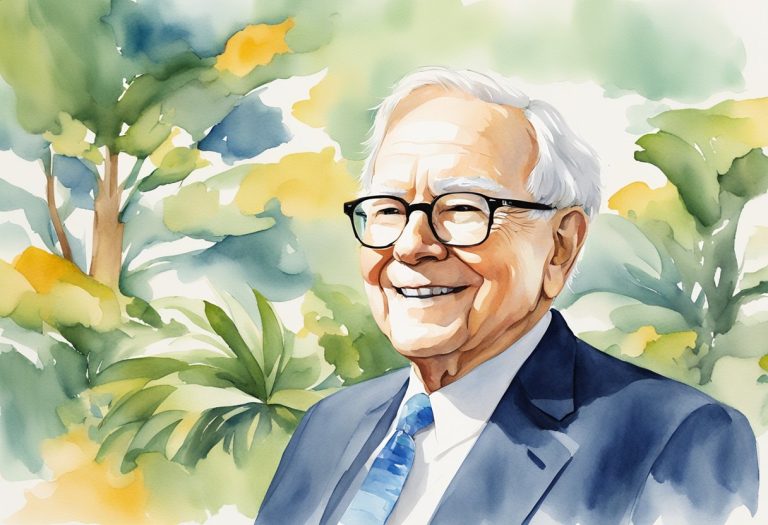Simon Sinek’s Tips: The Only Advice You’ll Ever Need (Seriously)
You’re always looking for ways to improve yourself and your career, and who better to turn to for advice than Simon Sinek? Sinek is a renowned author, speaker, and leadership expert who has inspired millions with his TED Talks and bestselling books, including “Start With Why” and “Leaders Eat Last.” Lucky for you, we’ve compiled some of Sinek’s top tips to help you on your journey to success.

According to Sinek, one of the most important things you can do to succeed is to “start with why.” In other words, figure out your purpose and your passion, and let that guide your decisions and actions. As Sinek puts it, “People don’t buy what you do, they buy why you do it.” By focusing on your why, you can inspire others and create a sense of purpose that goes beyond just making a profit.
Another key tip from Sinek is to prioritize your team and your relationships. As a leader, it’s important to put the needs of your team before your own and to cultivate a culture of trust and collaboration. Sinek emphasizes the importance of empathy and active listening, saying, “Leadership is not about being in charge. It’s about taking care of those in your charge.” By building strong relationships and fostering a sense of community, you can create a more successful and fulfilling workplace.
Lessons from Simon Sinek’s Interviews

When it comes to inspiration and passion, Simon Sinek is a name that quickly comes to mind. In his interviews, he shares valuable insights that can help you become a better leader and achieve your goals. Here are some top tips from his interviews.
Listen More, Speak Less
According to Simon Sinek, listening is a crucial skill that many leaders overlook. “If your lips are moving, you’re not learning,” he says. Listening helps you understand your team’s needs and concerns, which can help you make better decisions. So, the next time you’re in a meeting, try to listen more and speak less.
Focus on the Why
Sinek’s famous TED Talk, “Start with Why,” emphasizes the importance of understanding your purpose. He believes that people are more motivated by a sense of purpose than by money or status. “People don’t buy what you do; they buy why you do it,” he says. So, if you want to inspire your team, focus on the why behind your actions.
Embrace Failure
Failure is a natural part of the learning process, and Sinek believes that we should embrace it. “You don’t learn from successes; you learn from failures,” he says. Instead of fearing failure, use it as an opportunity to learn and grow. As Sinek puts it, “The goal is not to be perfect by the end; the goal is to be better tomorrow.”
Inspire Others
As a leader, your job is to inspire and motivate your team. Sinek believes that inspiration comes from being authentic and vulnerable. “People don’t follow you because you’re perfect; they follow you because you’re real,” he says. So, don’t be afraid to show your human side and share your struggles with your team.
In conclusion, Simon Sinek’s interviews provide valuable lessons for anyone looking to become a better leader. By listening more, focusing on the why, embracing failure, and inspiring others, you can achieve your goals and motivate your team to do the same.
Public Speaking and Presentation Techniques

Presenting in front of an audience can be nerve-wracking, but with the right strategies, you can turn your nervousness into excitement. Simon Sinek recommends reframing your mindset by focusing on the message you want to convey rather than your own performance. As he says, “The audience isn’t there to judge you. They’re there to hear your message.”
One way to deliver your message effectively is through storytelling. Sinek suggests using stories to convey your ideas because “stories are easier to remember than facts and figures.” By telling a story, you can engage your audience and make your message more memorable.
Communication is also key when presenting. Sinek advises speakers to speak clearly and avoid using jargon or technical terms that may confuse the audience. He also emphasizes the importance of eye contact, as it helps to establish a connection with the audience.
To combat nervousness, Sinek recommends taking deep breaths and focusing on your message. He also suggests practicing your presentation beforehand to build confidence and familiarity with the material.
In summary, when it comes to public speaking and presentations, remember to reframe your mindset, use storytelling, communicate clearly, make eye contact, and combat nervousness with deep breaths and practice. As Simon Sinek says, “The goal is not to be perfect by the end. The goal is to be better tomorrow.”
The Power of Authenticity

Simon Sinek once said, “Authenticity is the alignment of head, mouth, heart, and feet – thinking, saying, feeling, and doing the same thing – consistently. This builds trust and followers love leaders they can trust.”
Being authentic means being true to yourself and living a life that is in line with your values and beliefs. It’s about taking responsibility for your actions and being honest with others. When you are authentic, people can sense it, and they are more likely to trust and respect you.
In a world where people are constantly bombarded with fake news and false promises, authenticity is more important than ever. People are looking for leaders who are genuine and who they can trust. As Simon Sinek said, “People don’t buy what you do; they buy why you do it. And what you do simply proves what you believe.”
When you are authentic, you are also more likely to attract like-minded people into your life. As Simon Sinek said, “When we are surrounded by people who believe what we believe, something remarkable happens: trust emerges.” This trust can lead to deeper connections and more meaningful relationships.
Being authentic also means giving back to others and making a positive impact on the world. As Simon Sinek said, “The responsibility of leadership is not to come up with all the ideas but to create an environment in which great ideas can thrive.” When you are authentic, you inspire others to be their best selves and to make a difference in the world.
In conclusion, authenticity is a powerful tool that can help you build trust, attract like-minded people, and make a positive impact on the world. As Simon Sinek said, “Authenticity is the foundation from which all meaningful change begins.” So, be true to yourself, take responsibility for your actions, and give back to others.
Cultivating Emotional Connections and Relationships

One of the most powerful ways to create a loyal audience or team is by cultivating emotional connections and relationships. According to Simon Sinek, “People don’t buy what you do; they buy why you do it.” Therefore, it’s essential to connect with your audience or team on an emotional level, so they feel like they’re a part of something bigger.
To cultivate emotional connections, you need to be authentic and vulnerable. “Vulnerability is the birthplace of innovation, creativity, and change,” says Sinek. By being vulnerable, you show your audience or team that you’re human, and you’re not afraid to make mistakes. This builds trust and creates a safe space for people to open up and connect with you.
Another way to cultivate emotional connections is by listening to your audience or team. “Leadership is not about being in charge. It’s about taking care of those in your charge,” says Sinek. By listening to your audience or team, you show them that you care about their needs and opinions. This creates a sense of belonging and makes people feel valued.
Lastly, to cultivate emotional connections, you need to provide support. “Leadership is not a rank or a position. It is a choice – a choice to look after the person to the left of us and the person to the right of us,” says Sinek. By providing support, you show your audience or team that you have their back, and you’re willing to help them succeed. This creates a sense of loyalty and makes people want to work harder for you.
In conclusion, cultivating emotional connections and relationships is essential for creating a loyal audience or team. By being authentic and vulnerable, listening to your audience or team, and providing support, you can create a sense of belonging and loyalty that will last a lifetime. As Simon Sinek says, “When people are financially invested, they want a return. When people are emotionally invested, they want to contribute.”
Mastering the Art of Persuasion

You want to convince someone to do something, but you’re not sure how? Simon Sinek has some tips for you. According to him, persuasion is all about understanding the other person’s perspective and addressing their needs. Here are some tips to help you master the art of persuasion:
- Start with Why: “People don’t buy what you do; they buy why you do it.” This quote from Simon Sinek emphasizes the importance of starting with the why. Before you try to convince someone to do something, make sure you understand why it’s important to them. If you can connect with their values and beliefs, you’ll have a much better chance of persuading them.
- Ask Questions: “The only way to influence someone is to find out what they want and appeal to that.” This quote from Simon Sinek highlights the importance of asking questions. If you want to persuade someone, you need to understand their needs and desires. Ask open-ended questions to encourage them to share their perspective with you.
- Use Impactful Language: “People don’t buy what you do; they buy how you do it.” This quote from Simon Sinek emphasizes the importance of language. When you’re trying to persuade someone, use impactful language that will resonate with them. Use strong verbs, vivid adjectives, and emotional appeals to make your argument more compelling.
- Be Authentic: “Authenticity is when you say and do the things you actually believe.” This quote from Simon Sinek highlights the importance of authenticity. If you want to persuade someone, you need to be genuine and sincere. Don’t try to be someone you’re not, or pretend to believe something you don’t. Be true to yourself and your values.
By following these tips from Simon Sinek, you can become a more persuasive communicator. Remember to start with why, ask questions, use impactful language, and be authentic. With these tools in your arsenal, you’ll be able to persuade anyone to your point of view.
Final Thoughts on Simon Sinek’s Teachings

So, you’ve read through all of Simon Sinek’s tips and tricks for becoming a successful leader in business. You’re probably feeling pretty inspired and ready to take on the world, right? Well, before you go charging off into the sunset, let’s take a moment to reflect on some final thoughts from the man himself.
First and foremost, Simon Sinek emphasizes the importance of putting people first. As he says, “Leadership is not about being in charge. It’s about taking care of those in your charge.” This means understanding and empathizing with the people you work with, and creating an environment where they feel valued and supported.
Another key aspect of Sinek’s teachings is the power of purpose. He believes that successful businesses are built on a strong sense of mission and values, and that leaders who can articulate that purpose in a compelling way will inspire their teams to achieve great things. As Sinek puts it, “People don’t buy what you do, they buy why you do it.”
Of course, none of this is easy. As Sinek himself admits, “Leadership is not a rank or a position. It is a choice.” It takes hard work, dedication, and a willingness to learn and grow. But if you’re up for the challenge, Sinek’s teachings offer a roadmap for success.
So, as you go forth into the world of business and leadership, remember to put people first, stay true to your purpose, and never stop learning and growing. As Simon Sinek says, “Leadership is not about being in charge. It’s about taking care of those in your charge.”





